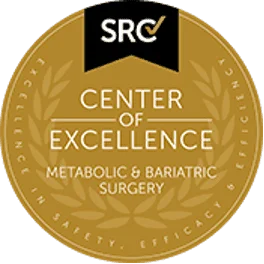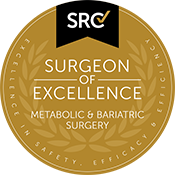How Should You Prepare for Weight Loss Surgery?
Once a date has been set for your weight loss surgery, you’ll want to ensure you’re as ready as you can be.
Preparing for weight loss surgery may involve changes to your diet and medications and some practical planning for your recovery period.
Pre-bariatric surgery diet
A very low-energy diet (VLED) involves replacing all your meals with specially formulated, nutrient-rich shakes. This very low-carb diet forces your body to use its fat stores for energy, which helps you lose weight.
Losing weight before weight loss surgery may seem a little strange, but it serves several important purposes.
Following a VLED helps to reduce:
- Weight while maintaining lean muscle mass
- The size of your liver
- Surgical risk.
Why do we care about the size of your liver? Because it’s often larger and more prone to bleeding in bariatric patients, which can cause complications in surgery. When we perform laparoscopic (keyhole) weight loss surgery, we need to move your liver out of the way, which is easier to do if it has shrunk before surgery.
Losing weight before surgery also helps to improve your blood sugar levels, insulin sensitivity and clotting factors. And that can all improve your surgical outcomes.
Adopting a healthy lifestyle
Now is the time to boost your health as much as you can. That should involve:
- Drinking plenty of water each day
- Stopping smoking – call the Quitline for help
- Avoiding alcohol – try support groups like Hello Sunday Morning
- Doing some exercise each day.
Adjusting medications
Your surgeon will gather a detailed list of your medications and advise you on which ones to continue, which to adjust and which to cease in the lead-up to your surgery.
They’ll also provide some guidance on medication use after your procedure.
Getting organised at home
Think about the things you normally do each day and arrange for others to do them.
That may involve organising:
- Time off work – your surgeon will advise you on how long you might need
- Someone else to manage household chores like laundry, grocery shopping, meal prep and the school run
- Gathering things to help you pass the time while you recover, like a stack of new books or art supplies
- Ensuring items you use often are within easy reach so you don’t have to lift, stretch or bend during your recovery.
Familiarising yourself with your procedure
Often, the more you understand, the better prepared you feel. So, ask your doctor about your procedure and read through the pre-procedure information from the hospital so you know where to go and when.
Arranging transport
You can’t drive yourself home after weight loss surgery – it’s not permitted for anyone who has had anaesthesia. That means you’ll need a friend or relative to drive you home.
Emotional support
Bariatric surgery involves an operation that changes your digestive system, followed by substantial lifestyle changes. Along with support from your surgeon, dietitian and exercise physiologist, you’ll also need support from those close to you.
So, tell a few trusted people about your surgery. Explain how they can help and encourage you through practical support, encouraging words or accompanying you on a daily walk.
How can we help?
Dr Qiuye Cheng has dedicated four years of post-fellowship sub-speciality training in upper gastrointestinal and bariatric surgery through well-recognised high-volume centres at St George Hospital in Sydney and St Vincent Hospital in Melbourne.
Dr Cheng is a specialist bariatric / upper GI surgeon who has achieved the status of bariatric surgeon of excellence. He operates at St George Private – Australia’s highest-volume bariatric hospital, which maintains a strong reputation as a leader in bariatric surgery. St George Private is Australia’s first internationally accredited Centre of Bariatric Excellence, which the Surgical Review Corporation recognises.
Please book an appointment today.
Disclaimer
All information is general in nature and is not intended to be a substitute for professional medical advice. Any surgical or invasive procedure carries risks. Dr Qiuye Cheng can consult with you to confirm if this advice is right for you.
References
Queensland Government, Metro North Health, Before bariatric surgery, https://metronorth.health.qld.gov.au/hospitals-services/bariatric-surgery-services/pre-bariatric-surgery, [Accessed 20 March 2024]







